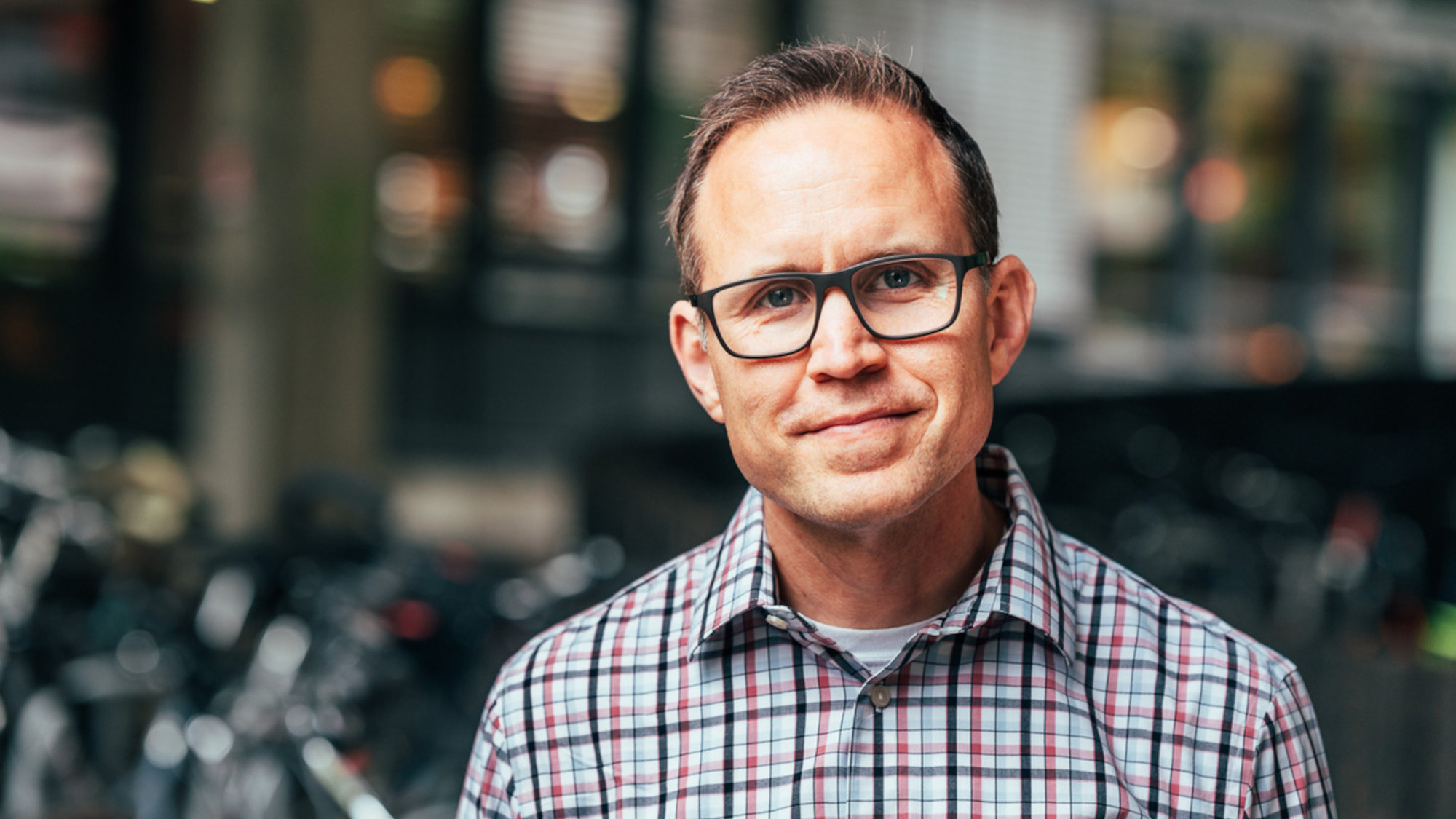
© Lukas Klose / Universität Bremen
On the Trail of German Emigration
The US-American Andrew Torget told us about his experiences as a Fulbright Fellow
Andrew Torget, Associate Professor of History at the University of North Texas, is spending the summer semester 2023 at the University of Bremen. He is teaching seminars on U.S. history and slavery, conducting research on German emigration to Texas, and exploring Germany and Europe with his family. A conversation about a long-forgotten American port city, surprising views of German students, and the proper way to use Bremen’s bike paths.
Mr. Torget, how did it come about that you are currently a guest at the University of Bremen?
I came to the university as part of the Fulbright Program. It enables students and researchers from the USA to teach and conduct research abroad. In exchange, the program also brings foreign nationals to the U.S. The goal is for the students and researchers to establish new networks and maintain them after their return. For me, this means that I am leading seminars and conducting research on German emigration with two researchers from the University of Bremen. I am currently writing a book about the Texan city of Galveston, which was the destination for many emigrants from the region around Bremen and Bremerhaven in the 19th century.
What kind of city was Galveston?
Galveston was still a small and unknown port city in the 1830s. However, that changed with the many immigrants who came from Northern Germany to the U.S. By 1890, Galveston was the second largest port in the U.S. after New York City. The population of the city also grew rapidly, from about 4,000 in 1850 to nearly 38,000 in 1900. In 1900, Galveston was destroyed by a hurricane and has since been a rather small and unknown city again. I have set out to reconstruct the history of the city and its immigrants.
What do you want to find out about Galveston in Germany?
I would like to learn more about the fates of individual Germans who immigrated to the USA. With the help of their life stories, I would like to illustrate how different the experiences of German emigrants were at different points in the 19th century. To this end, I hope to find suitable sources at the German Emigration Center in Bremerhaven. Apart from this specific topic, however, it is also exciting for me to learn about other perspectives on U.S. history here in Germany. Currently, I am teaching two seminars at the university: one with Cornelius Torp on U.S. history since the American Civil War, and a seminar with Sarah Lentz on the history of slavery.
In what ways do the researchers and students in Bremen view U.S. history differently?
They often question things that we in the U.S. take for granted. For example, we talked about the attack on Pearl Harbor. Most people in the U.S. to this day perceive that as a defining event in their history. However, here in Bremen, the students asked me what was actually formative about this event. This question led me to evaluate the subject from a different perspective.
How is your life different here than in the U.S.?
I am here with my wife, my 15-year-old son, and my 13-year-old daughter. One big difference from our life is Texas is that we don’t have a car here, but we also need it much less. It’s great how many people here travel by bike – we hardly know that from home. In the beginning, we often walked on the bike paths, which prompted several annoyed reactions. Now I’m the one who rings the bell when pedestrians block the way again (laughs). For someone who comes from Texas, the distances here in Europe are extremely short. That’s why we travel a lot, most recently to London, Paris, and Amsterdam, for example.
Do you miss anything from the USA?
Mostly our friends and family, although some of them have come to visit us here. But by now, we have settled in well here. When we came back to Bremen from a weekend trip a while ago, it felt a bit like returning home.